Last month Anyone’s Child Campaign Manager, Jane Slater, caught up with who can only be described as the drug policy activist of 2020, Peter Krykant. Peter has taken on the political hot potato of the year and established the UK’s first Overdose Prevention Centre, or Drug Consumption Room, in Glasgow. This is despite Westminster declaring that what he is doing is illegal. We decided to catch up with him and find out what had motivated him to take this action, and to find out more about what impact his van is having in Glasgow, at the heart of Scotland which is the overdose capital of the world”
Overdose Prevention Centres are hygienic, safe spaces where people are able to take illegal drugs under the supervision of trained staff. In an OPC, they have access to sterile equipment, and staff can respond immediately to overdose. They also provide an opportunity for brief interventions and advice, or for people to be referred to drug treatment, mental health services, wound care, blood testing and other support.
Can you tell us a bit about your story and why you decided to set up the UK’s first Overdose Prevention Centre?
“The drug death rate in Scotland at the moment is the highest in the world….I just couldn’t stand back anymore.”
I was a public injecting drug user for a number of years, I spent a long period of time homeless, most of that time was in Birmingham – rough sleeping and in homeless accommodation. That was a long time ago – over 20 years ago now, I was injecting heroin and crack cocaine daily and I was fortunate that I got support and was kept alive through the administration of Naloxone from paramedics. Harm reduction kept me alive and it gave me opportunities to explore other avenues in life and I was lucky that I was able to move away from that really chaotic substance use.
Eventually, after many years of working in sales and getting married and having children, I started working with people who were drug users and I quickly saw that harm reduction in Scotland was very minimal, we had this big, ongoing debate about Overdose Prevention Centres for about 4 years, since 2016, it was said that the first Overdose Prevention Centre was going to open in Glasgow and then again in 2018, there was a newspaper report about a drug consumption facility getting the green light.
In 2020 we’re still in the same position, Glasgow has got the highest outbreak of HIV that the UK has seen in the last 30 years and that’s condensed in the city centre amongst people who are injecting drugs publicly. Infections are rife, people are getting infected wounds from injecting in really horrible conditions and, of course, most people will be aware that the drug death rate in Scotland at the moment is the highest in the world.
I just couldn’t stand back anymore. My last job was actually out testing people for HIV in the city centre of Glasgow, we used rapid testing kits so we’d give people results within ten minutes but I was actually walking away, after giving someone a non-reactive result, knowing that they’d be back in that same position, at risk again, on the same day, because they had nowhere to go, they were homeless or living in homeless accommodation, just like I was twenty-odd years ago, still using in the same conditions I was using in then.
So I decided to grab the bull by the horns, I visited Copenhagen where they got a van and they just did it anyway. I was lucky enough to meet some of the people who were involved in that original set-up, before they had the legal framework to actually open facilities. I came back to Scotland and I just said “that’s that, I’m just gonna go and do it anyway”, like they did in Copenhagen.
So a few months ago I set it up. I got a van, I kitted it out, got sterile equipment, nice clean conditions inside and I take it out to Glasgow and I allow people to come in and inject drugs in the facility.
What would you say to your critics who would say that initiatives such as yours are encouraging illicit drug use?
In terms of encouraging people to take illicit drugs, we are not condoning illicit drug use, what we are saying is that people are going to take these drugs anyway but rather than take them in really horrible conditions where they’re hiding from society, where we can’t talk to them about some of the underlying reasons that they’re injecting heroin or powder-form cocaine into their groins, why they’re self-harming.
“So we say let’s encourage people to be safe, let’s stop the deaths that are happening, let’s eliminate the HIV crisis that we’ve got going on in Glasgow and let’s give people a bit of dignity and respect, because that’s what it’s about at the end of the day.”
Some of the people that we’ve seen have given us some heart-wrenching stories about trauma, childhood sexual and physical abuse and how, as they’ve grown into adults, they’ve started taking drugs to try and escape that trauma and that system that we currently place them in is a criminalised system that just creates more trauma for them. Some of the people we’ve seen in their forties or fifties have been in and out of prison their whole lives because of the criminalisation that they’ve faced, the revolving door system. We know from the data that’s out there already, from places like the medically supervised injection facility in Sydney, that around 80% of the people who regularly attend there accept a referral into treatment, people aren’t going to accept a referral into substitute prescribing while they’re hidden under a bridge or in an abandoned building somewhere, if they are in a safe environment where we can talk to people and understand some of the housing, welfare and psychological issues that they face, we can help and support people. So we say let’s encourage people to be safe, let’s stop the deaths that are happening, let’s eliminate the HIV crisis that we’ve got going on in Glasgow and let’s give people a bit of dignity and respect, because that’s what it’s about at the end of the day.
What does the van actually look like? What’s it like for those using it?
I suppose from the perspective of people coming to use the van it’s hard to describe, there’s a novelty to it for many people. The kind of equipment we provide are round stainless steel trays for people to prepare, clean equipment, sterile water, bottles of water, we see a lot of powder-form cocaine injections which is quite unique to Scotland, so the water can help if they go into overdose. We also carry Naloxone and defibrillators. I suppose it’s welcoming, we have really good conversations with people, good harm reduction advice and leaflets, we try to carry protein bars and protein shakes, we’re starting to provide winter support packages (protein bars and shakes, hats, gloves etc) because most people who use the service are homeless or living in homeless accommodation, for many their main source of income is begging so we are trying to make sure they’re supported in their jobs, because essentially that’s what they do for their job, if you’re sitting on a cold, stone floor for 8 – 10 hours a day begging, it’s one of the hardest jobs that you’ll ever do.
Can you tell me about some of the people who use your van?
There’s one woman, even talking about her I get affected by it, she has some of the deepest self-harm scars I’ve ever seen, she’s injecting in the groin, and she sleeps in a tent. She wasn’t at the van this Friday, but the Friday before she was and she said she had a court date the following week and that her legal aid had told her that if she didn’t have a fixed address by the court date then she’d likely be remanded in custody because she would need a bail address. She wasn’t around this Friday but was the three Fridays before so I think she may be in prison now. The two previous weeks she had somebody with her, an older guy who was a drinker, not a drug user. I gave him a Naloxone kit and trained him how to use it. So I felt that she was going away with a little bit of security but the guy had disappeared by the last Friday that she came in and I think she’s in prison now.
Another person who has really impacted me is a guy who has lost one leg due to injecting drugs, his wheelchair is missing a front wheel, so we can’t get him into the van. So we took the tray out into the alleyway for him, before he was leaning over, preparing his injection on the ground in this really horrible alleyway, so we take him this sterile tray and supervise him while he injects, to make sure he’s protected if he overdoses. And that’s just horrible because he’s already lost a leg, he’s injecting into his other leg but not into veins per se, he’s injecting into gaping, open wounds that have pus coming out of them, he’s been sitting in Glasgow for about three weeks at least with a wheelchair with 3 wheels on it. There’s been lots of stories like that, people in their 40s and 50s telling of the trauma from early childhood, physical and sexual abuse, they’ve been criminalised – shoplifting to get drugs and anti social behaviour pile up and up so that each time they go to court they end up with another prison sentence.
It’s been tough and I recognise that I need to go and get some counselling for the things that I’ve seen because does it need to be this way? That’s probably the toughest thing about it all, we can only be out a limited amount of times, not every day, it’s well within society’s ability to change this, it could change overnight given better policies, if there was a better review of policy at government level.
Did you have a lightbulb moment which compelled you to set up the van?
There wasn’t really a lightbulb moment, it was gradual learning – a big learning curve, I was a stay at home dad, when I went back to work, I got a job in a recovery community (which is a place where they set up cafes and run activities and events) I think that was what changed my perception – they do good work and I have nothing against recovery communities but there’s been this over reliance on them in Scotland. If somebody came smelling of alcohol, were stoned from cannabis, if they were showing any signs of the impacts of the drugs that they were taking they would be turned away. I worked there for a year and that’s where I started reading things about harm reduction and I started to learn that there’s a real missing link there because if people are coming to a recovery café for support but they’re getting turned away because they took drugs then those are the people most likely to die because they’ve got nowhere left to go and the reason was always that you’re putting the people who are stable or abstinent at risk and for me that was a hard environment to work in, so it was that job and the next job as the street coordinator for the HIV project, knowing that people are still going to be at risk – reactive rather than proactive – safe spaces, safe supply of prescription drugs that they need.
What’s your message to the Scottish and UK governments?
“Let’s do it, let’s get it done is my message to the Scottish government.”
I think the UK government has dug its heels in now, we’ve seen from the recommendations to the Home Office from it’s own advisory council, the ACMD, the UK Parliament’s Health and Social Care Select Committee and the Scottish Affairs Select Committee, they are all recommending drug policy changes, a review of the Misuse of Drugs Act, the introduction of enhanced harm reduction services like Overdose Prevention Centres. But the UK government consistently ignores the evidence.
When it comes to people who use drugs, it’s not being driven by the evidence from around the world in saying that Overdose Prevention Centres help not just people who inject drugs publicly but they help society with less discarded equipment, less ambulance call out, less hospital admissions due to infected wounds saving the NHS money, less police time concentrated on areas where people publicly inject drugs – all the evidence and yet the UK government continues to ignore it. My hope is that when Dame Carol Black’s stage two report comes out that they will have some recommendations in it, that we will look to get some changes and review the Misuse of Drugs Act and see how changes to that can be made so that we can introduce some of these life saving initiatives that we’re seeing in scores of countries around the world now. My hope is not high for that, I think that the Home Office are looking to win votes.
There are things that can be done right now in Scotland and the Scottish government has been showing in recent months that they’ve been using a Drug Consumption Room as a political football because they don’t really have a line of defence left when it comes to looking at drug deaths in Scotland, it’s astronomical where we sit in comparison to England and Wales and other countries throughout Europe. They can’t use this as a football anymore because drug policy and legal experts are saying this can be done in Scotland and it’s really a case of if they had a will to do it but it’s being proven they don’t have that will at the moment so I hope they take a different stance and that the SNP start to listen to some of their own MPs in Westminster who are now starting to say Holyrood should go ahead and do this. Let’s do it, let’s get it done is my message to the Scottish government.
What can our activists and people who are supportive do to help?
I think the main thing to do to help is to email MPs, in Scotland, email your MSPs, Tweet about this, retweet Transform, Anyone’s Child, me. Instagram as well. The more that we can get the public to understand, to talk about the benefits of less discarded equipment, less wasted police time, less anti-social behaviour. The businesses and residents around where I operate my van are so supportive because they see and they understand the impact and that’s always been the bigger question, we obviously still get people saying they don’t want ‘my junkie bus’ on their street, I always get that on social media, however, I think that’s a real minority who think like that now, most people recognise that problematic drug use is a health issue, we know that for about 90% of people who use drugs it doesn’t create any problems, the only problems that could be created for them is through criminalisation, for possession of small amounts of cannabis, it’s about recognising that small proportion of people whose drug use does become a big problem and how we treat those people and engage with them as a society. So Instagram, Twitter, get out there, email your MP and MSP, do what you can, set up online events at the moment, talk to other people who also want change.
Use our template letter to send to your MP/MSP here.
Want to get involved in campaigning for reform? Join the Activist Network, contact cora@transformdrugs.org.

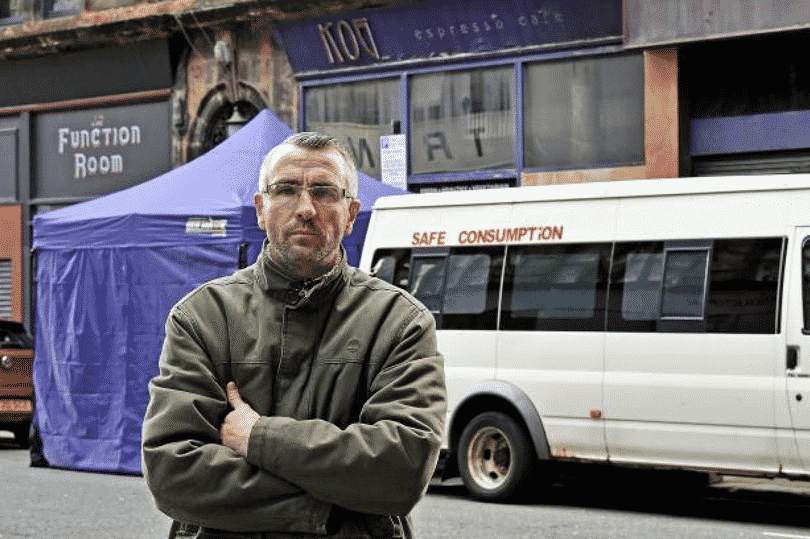
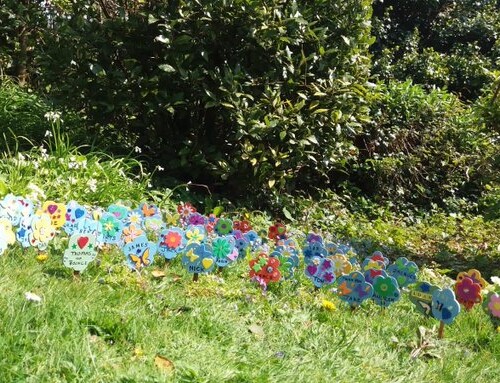
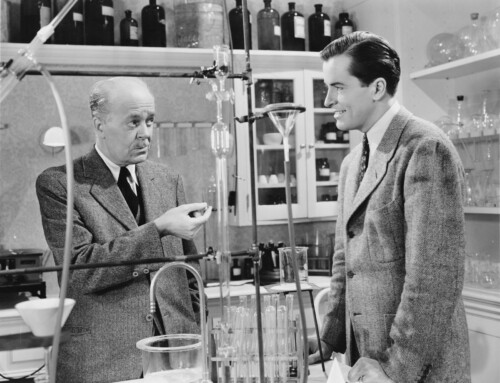
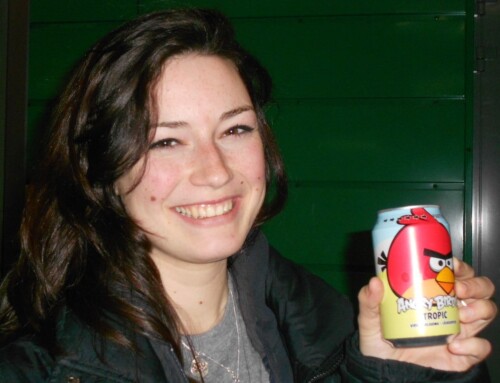
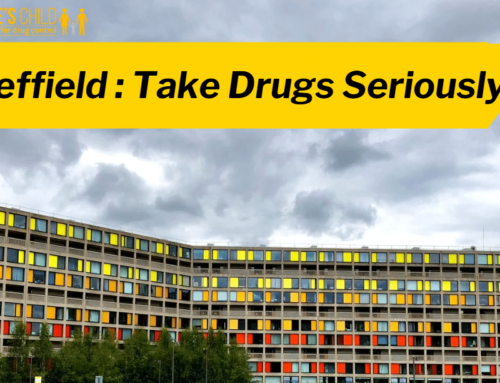

Leave A Comment